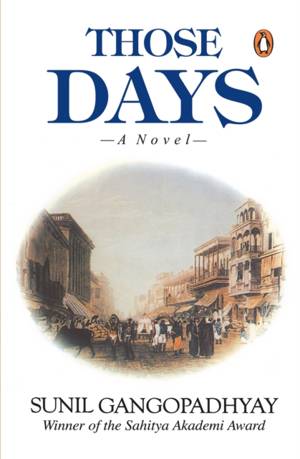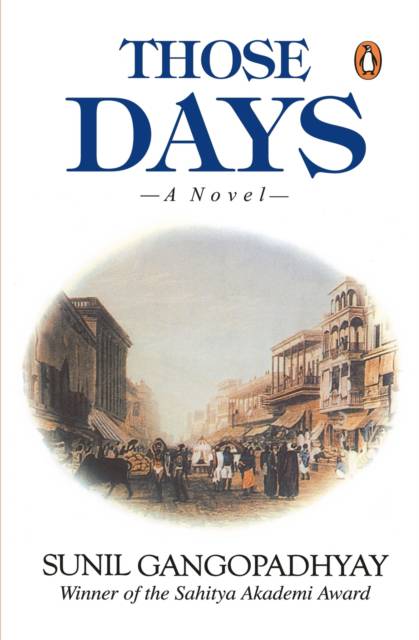
- Afhalen na 1 uur in een winkel met voorraad
- Gratis thuislevering in België vanaf € 30
- Ruim aanbod met 7 miljoen producten
- Afhalen na 1 uur in een winkel met voorraad
- Gratis thuislevering in België vanaf € 30
- Ruim aanbod met 7 miljoen producten
Zoeken
Omschrijving
Winner of the Sahitya Akademi Award An award-winning novel that uses both vast panoramic views and lovingly reconstructed detail to provide an unforgettable picture of nineteenth-century Bengal. The Bengal Renaissance and the 1857 uprising form the backdrop to Those Days, a saga of human frailties and strength. The story revolves around the immensely wealthy Singha and Mukherjee families, and the intimacy that grows between them. Ganganarayan Singha's love for Bindubasini, the widowed daughter of the Mukherjees, flounders on the rocks of orthodoxy even as his zamindar father, Ramkamal, finds happiness in the arms of the courtesan, Kamala Sundari. Bimbabati, Ramkamal's wife, is left to cope with her loneliness. A central theme of the novel is the manner in which the feudal aristocracy, sunk in ritual and pleasure, slowly awakens to its social obligations. Historical personae interact with fictional protagonists to enrich the narrative. Ishwar Chandra Vidyasagar, the reformer; Michael Madhusudan Dutt, the poet; the father and son duo of Dwarkanath and Debendranath Tagore; Harish Mukherjee, the journalist; Keshab Chandra Sen, the Brahmo Samaj radical; David Hare and John Bethune, the English educationists--these and a host of others walk the streets of Calcutta again, to bring alive a momentous time.
Specificaties
Betrokkenen
- Auteur(s):
- Uitgeverij:
Inhoud
- Aantal bladzijden:
- 608
- Taal:
- Engels
Eigenschappen
- Productcode (EAN):
- 9780140268522
- Verschijningsdatum:
- 1/01/2000
- Uitvoering:
- Paperback
- Formaat:
- Trade paperback (VS)
- Afmetingen:
- 127 mm x 198 mm
- Gewicht:
- 421 g

Alleen bij Standaard Boekhandel
+ 33 punten op je klantenkaart van Standaard Boekhandel
Beoordelingen
We publiceren alleen reviews die voldoen aan de voorwaarden voor reviews. Bekijk onze voorwaarden voor reviews.











